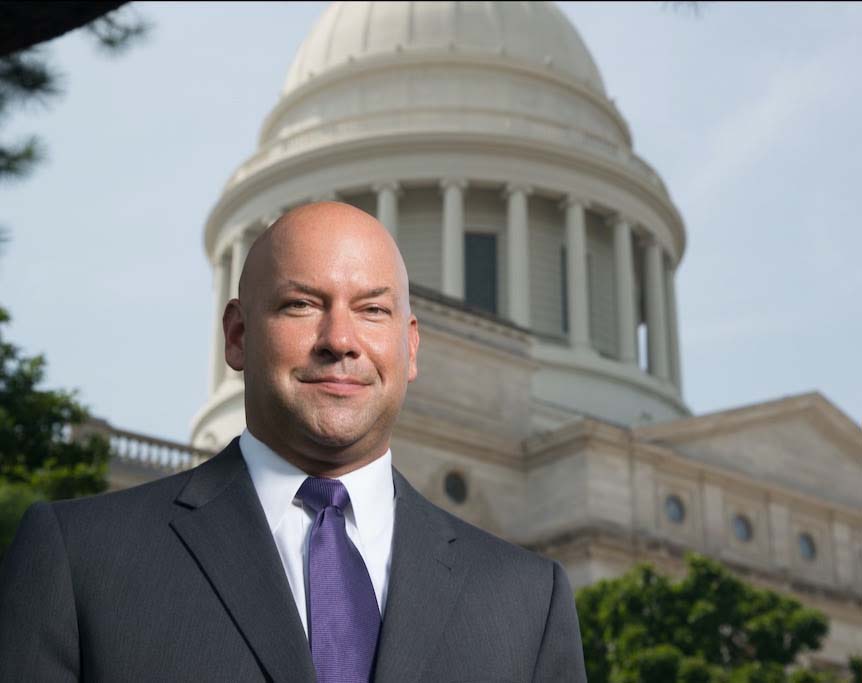Arkansas’ casino gaming industry sees strong first-quarter growth as Arkansas emerges from post-pandemic lull
May 23-29, 2022
By Wesley Brown
As the state emerges from the two-year pandemic, Arkansans and out-of-state bettors have pushed commercial gaming revenue in the Natural State to an all-time high, according to American Gaming Association’s (AGA) Commercial Gaming Revenue Tracker.
The AGA also released its annual State of the States report, which details an unbridled industry recovery throughout 2021. That report shows annual commercial gaming reached a new record of $53.03 billion — a 21.5% increase from the previous pre-pandemic high in 2019.
“Our industry’s success goes beyond the bottom line and into communities across the country. The record state and local tax contributions fund vital services from infrastructure and education to healthcare and emergency services,” said AGA President and CEO Bill Miller.
But the momentum in 2021 in Arkansas and across the U.S. did not stop at the end of 2021. Total commercial gaming revenue for the first quarter of 2022 jumped nearly 29% year-over-year. Nearly every 32 of the 34 commercial gaming jurisdictions across the U.S. surpassed year-ago levels with Arkansas, Florida, and New York setting new quarter records of $147.4 million, $182 million, and nearly $1 billion, respectively.
Nationwide commercial gaming revenue totaled $14.31 billion in the first quarter, which already puts the U.S. on record to easily surpass the record 2021 financial tally, AGA’s Commercial Gaming Revenue Tracker shows. This sets a new first-quarter record and nearly matches the all-time quarterly record, which was just set in the fourth quarter of last year at $14.35 billion.
The strong start to the year was punctuated by March’s revenue performance of $5.31 billion. The month marked the highest-grossing revenue month in industry history.
“Consumers continue to seek out gaming’s entertainment options in record numbers,” said AGA President and CEO Bill Miller. “Q1’s strong results build on the industry’s record year in 2021 despite continued headwinds from supply chain constraints, labor shortages, and the impact of soaring inflation.”
In Arkansas, which is now home to three voter-supported casinos in Hot Springs, Pine Bluff, and West Memphis, revenue is jumping off the chart. The $147.4 million in gaming receipts put millions of dollars in state revenue coffers in the first quarter with a 13.1% improvement in year-over-year totals and a 41.6% gain in the first quarter.
In Pine Bluff, where the Saracen Casino is up-and-running after the pandemic and last year’s winter weather that shut down the Jefferson County gaming center, first-quarter slot handle receipts are up 36% year-over-year and our net gaming receipts were up 27%, said Carlton Saffa, a former top aide for Gov. Asa Hutchinson who is now chief marketing officer at the Quapaw Nation-owned casino.
Room to grow
Saffa said the strong first-quarter commercial gaming numbers in Arkansas are mostly because the state’s casino industry is in the initial stages, and the AGA numbers show that Saracen and the other two casinos in Hot Springs and West Memphis are each finding their niche and seeing success from their diverse in-state and out-of-state clientele.
“There is plenty of room for each of us to grow and serve our niche,” said Saffa. He also noted that in September 2021, two of the top Wall Street credit rating services upgraded the bond ratings of Saracen Development LLC, a wholly-owned company of the Quapaw Nation.
According to Moody’s credit rating, Saracen’s faster-than-expected earnings and cash flow have ramped up to a level that covered fixed charges despite delays in Saracen Casino Resort’s opening after winter storms shut off the center’s water for several days and initial operating restrictions due to the COVID-19 pandemic.
“This rating upgrade sends a strong message that our Saracen gaming operation is performing well, and confidence exists in our ability to service debt,” Quapaw Nation Business Committee Chairman Joseph Tali Byrd said in September.
Former Arkansas Lottery
Director Bishop Woosley, who now leads Little Rock-based Woosley Gaming Advisors, a lottery and gaming consulting company that provides services to existing and emerging gaming and lottery vendors across the U.S., said Arkansas’ commercial gaming industry is seeing success for several reasons.
“The main reason for the increase is obviously because there are now three casinos operating in Arkansas with the full offerings of table games, slot machines, and retail sports betting,” said Woosley, director of the Arkansas Lottery from 2012 until late 2020. “The casinos have or are building hotels and opening fine dining restaurants on their properties which also draws more customers in who typically gamble while there. In addition, the casinos are also competing for customers which also generates more gaming revenue with free promotional plays and drawings for cash prizes or new cars enticing people to come to the casino.”
Woosley added that during the pandemic, lottery sales nationwide soared 20-40% because most casinos and other entertainment options were either closed or had limited capacity restrictions. “When the restrictions were lifted in late 2020 and early 2021, people were anxious to get back to normal and the casinos have directly benefited as people flocked to them resulting in dramatically increased revenue,” he said.
State’s fourth casino in Pope County still in the works
Meanwhile, the Arkansas Racing Commission in November voted to accept the application by Cherokee Nation Businesses/Legends Resort & Casino for the license in Pope County, allowing the process to move forward for Arkansas’ fourth casino. The move came after the Arkansas Supreme Court had ruled that a competitor, Gulfside Casino Partnership, was not qualified because it did not have an official letter from an elected official. It had obtained a letter from the previous county judge whose term ended before the application period began.
In November 2018, Arkansas voters approved a constitutional amendment authorizing the issuance of four casino gaming licenses in Crittenden, Garland, Pope, and Jefferson counties. Today, Oaklawn Racing Casino Resort in Hot Springs, Southland Casino Racing in West Memphis, and Saracen Casino Resort in Pine Bluff are operational.
Less than two weeks after Arkansas voters approved the gambling initiative, Oaklawn Racing and Gaming announced plans for a $100 million-plus project that will include a new high-rise hotel, multi-purpose event center, a larger gaming area and extra on-site parking. That project was completed three years ago.
Privately held Delaware North has also revealed plans to build a new 240,000 square foot casino complex and a 20-story, 300-room hotel by early 2021 in the Crittenden County bedroom community across the Mississippi River from Memphis, Tenn. Today, the newly built Southland Casino Racing features more than 1,500 slot machines, live blackjack, craps, and roulette tables, live greyhound racing and simulcast wagering. The West Memphis gaming destination is expected to phase out its greyhound racing at the end of this year, ending a nearly 75-year reign as one of the top dog tracks in the U.S.
Nearly two months after the Arkansas Racing Commission unanimously approved a gaming license for the Quapaw Nation of Oklahoma in Pine Bluff, the business partnership between the Oklahoma-based Indian tribe and a host of dignitaries broke ground in August 2019 on the $350 million gaming complex in Jefferson County.
Owned by the Quapaw Nation’s Downstream Development Authority LLC, the Saracen Casino Resort today includes an 80,000 square-foot gaming floor, 300-room hotel, convention center, and entertainment venue. Before its grand opening in October 2020, the Quapaw Nation also opened 300 gaming slots available at a Pine Bluff trucking stop located on land purchased by this partnership.
The fourth casino project in Pope County has been tied up in legal wrangles for three years over what out-of-state gaming operator would get the coveted fourth and final licensing permit. Cherokee Nation’s officials have said that Pope County casino when complete will employ 1,000 people upon opening, generating about $5 million annually in county taxes, and creating a 10-year economic impact of more than $3 billion. The planned multimillion casino and resort is expected to have 1,100 slot machines, 32 table games, and 200 hotel rooms. Construction is expected to begin this summer unless legal tie-ups continue.
The surge in gaming revenue in Arkansas is expected as state budget coffers overflowed in April with a record $1.3 billion in general revenue collections, according to the Arkansas Department of Finance and Administration’s (DFA) monthly revenue report released on May 3. With two months left in the state’s fiscal year that ends June 30, April gross revenues from all sources jumped to a record $1.32 billion, up 40% or nearly $379 million above year-ago levels and a huge $576 million or 76.7% above the state’s forecast.
For tax purposes, net revenue collection in April totaled $1.125 billion, $345.7 million above the same period in 2021, and $531.9 million beyond the state’s economic forecast for the month. This is also the first month in which overall collections reached $1 billion. Of that total, gaming revenues jumped to $36.4 million, up a robust 25.5% from $29 million in April 2021 and matching the state’s forecast.
Under state law, revenue generated by the Arkansas casinos is taxed at 13% on the first $150 million in net gaming revenue and at 20% when exceeding that figure. According to the state Department of Finance & Administration’s allocation formula, the revenues are distributed with 55% going to the state and the Arkansas Racing Commission. Another 19.5% and 8% go to the casino host city and county, respectively. The remaining goes into the Racing Commission’s Purse and Awards Fund, which is housed in DFA.
With just two months remaining in the fiscal year 2022, revenue collection is $987.9 million above the state’s annual forecast. After DFA predicted that the state will have a $1 billion-plus surplus going into the fiscal year 2023 that begins on July 1, Gov. Asa Hutchinson said he will likely call a special session this summer to consider how to allocate the state’s bounty and consider how the state will respond to the recently leaked U.S. Supreme Court ruling on Roe v. Wade.
“First, the state’s economy is booming, and the higher prices of consumer goods have increased the state’s revenue more than expected,” said Hutchinson. “Second, the national economic outlook has significant uncertainty, and there is a need for caution as we look at options for the end of the year surplus.”
The term-limited Republican governor said Arkansas taxpayers need and deserve at least a portion of the surplus to be returned to them “because the state should not be generating this large of a surplus.” “As to the likelihood of a special session, the revenue report increases the possibility of one, but it is too early to make that decision. I do not anticipate calling a special session before June 30, 2022,” he said.
Once a special session is called, Hutchinson said he will likely propose expanding broadband access across the state, fund school facility needs due to inflation, and deliver Arkansans another tax cut.
Photo Captions:
1. Saracen Casino workers in Pine Bluff prepare for evening of fun at the 80,000 square-foot gaming area complete with 2,300 slot machines, nearly 40 table games, and a dedicated poker room.
2. Former Arkansas Lottery Director Bishop Woosley (above), who now leads Little Rock-based Woosley Gaming Advisors
3. Saracen Casino Chief Marketing Officer Carlton Saffa (right)





